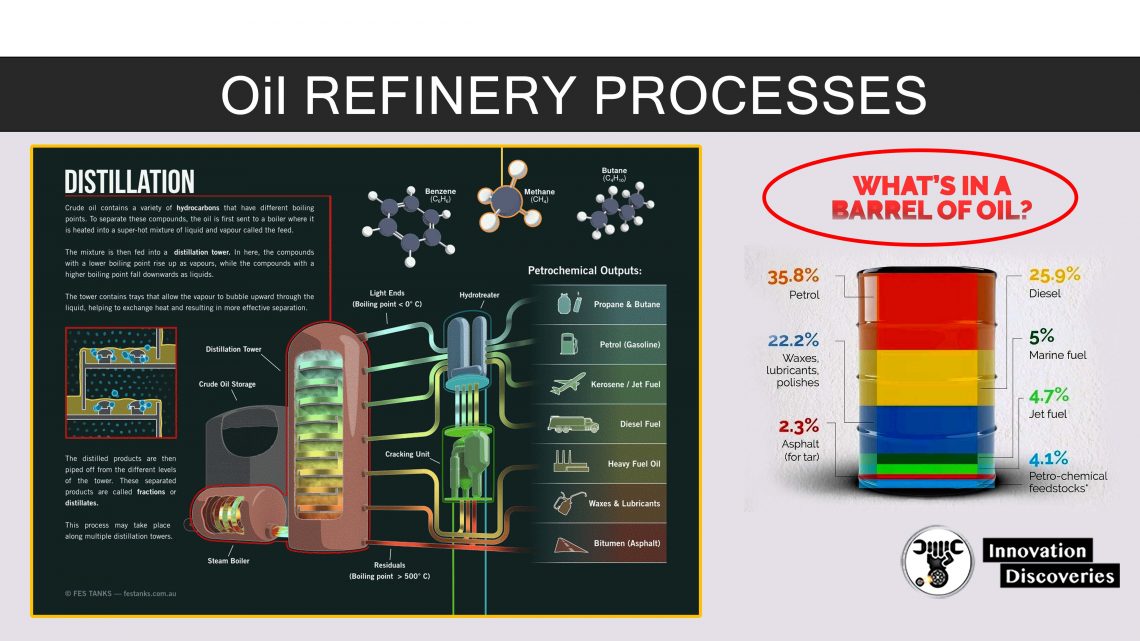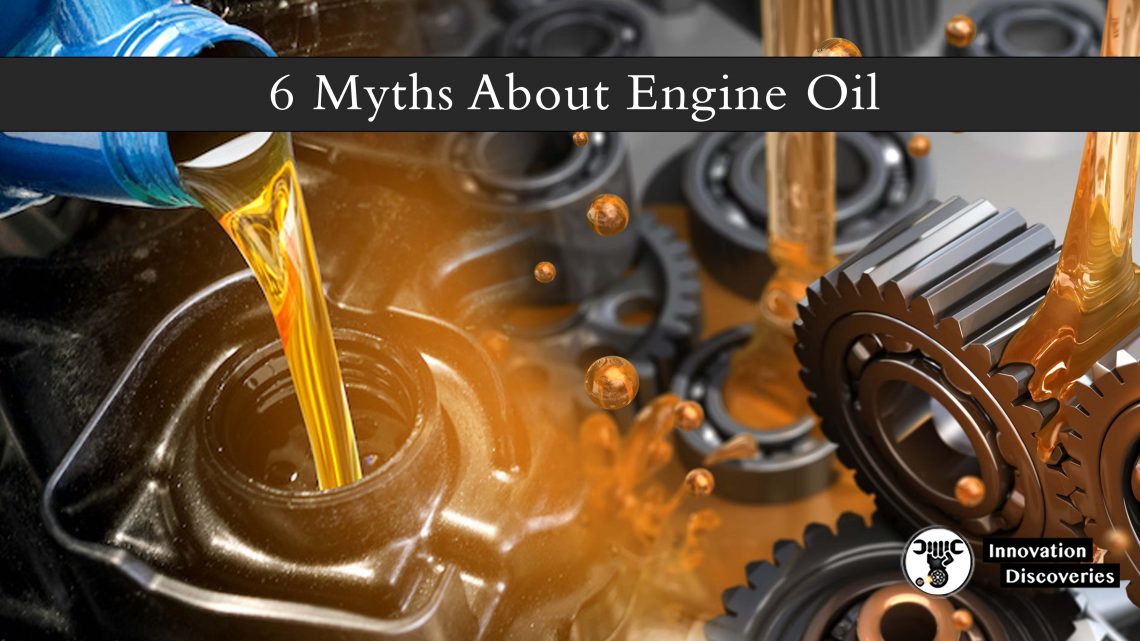
Introduction
The transfer case in a vehicle is a vital component of the drivetrain system. It directs power from the transmission to the front and rear axles in four-wheel-drive and all-wheel-drive vehicles.
Ensuring it operates smoothly and efficiently depends on using the correct type of fluid.
Here, we’ll explore the various fluids you can use for your transfer case, their importance, and how to choose the right one for your vehicle.
Types of Transfer Case Fluids
1. Automatic Transmission Fluid (ATF)
- Description: ATF is a specialized fluid used in vehicles with automatic transmissions.
- Properties: It has excellent lubricating properties, can withstand high temperatures, and contains additives to prevent corrosion and wear.
- Usage: Many modern transfer cases use ATF because it provides good lubrication and cooling under varying driving conditions.
- Common Types: Dexron, Mercon.
Automatic Transmission Fluid (ATF) is a versatile and commonly used fluid in the automotive industry, particularly in vehicles equipped with automatic transmissions. It also plays a significant role in the proper functioning of many modern transfer cases.
Here, we’ll delve into the specifics of ATF, its properties, and its application in transfer cases.
Properties of Automatic Transmission Fluid (ATF)
- Lubrication: ATF is designed to provide excellent lubrication for moving parts. This reduces friction and wear within the transfer case, ensuring smooth operation.
- Thermal Stability: ATF can withstand high temperatures without breaking down, making it suitable for transfer cases that experience significant heat during operation.
- Additives: ATF contains a range of additives that help prevent corrosion, reduce wear, and maintain fluid integrity over time. These additives enhance the fluid’s performance and longevity.
- Viscosity: ATF has a relatively low viscosity compared to gear oils, allowing it to flow easily and provide consistent lubrication across a wide temperature range.
- Detergent Properties: ATF helps keep the transfer case clean by preventing the buildup of sludge and deposits.
Common Types of ATF
- Dexron: Originally developed by General Motors, Dexron is a widely used ATF. It has undergone various updates, with Dexron VI being the latest iteration, offering improved performance and durability.
- Mercon: Developed by Ford, Mercon is another popular ATF. Like Dexron, it has multiple versions, with Mercon V and Mercon LV being common in newer vehicles.
- Type F: An older ATF formulation used in classic vehicles and certain heavy-duty applications. It lacks some of the friction modifiers found in Dexron and Mercon fluids.
Applications of ATF in Transfer Cases
Many modern transfer cases, especially those in light trucks and SUVs, are designed to use ATF. Here’s why ATF is preferred in these applications:
- Compatibility: ATF is compatible with the materials used in modern transfer cases, ensuring there is no adverse chemical reaction that could damage components.
- Temperature Range: The ability of ATF to perform well over a wide range of temperatures makes it suitable for varying driving conditions, from cold starts to high-temperature operations.
- Ease of Maintenance: ATF’s detergent properties help keep the transfer case clean, reducing the need for frequent maintenance.
- Manufacturer Specifications: Many vehicle manufacturers specify the use of ATF in their transfer cases, ensuring optimal performance and warranty compliance.
Choosing the Right ATF for Your Transfer Case
- Consult the Owner’s Manual: Always refer to your vehicle’s owner’s manual to determine the recommended type of ATF for your transfer case. Using the specified fluid ensures compatibility and performance.
- Check Fluid Specifications: Ensure that the ATF meets the necessary specifications (e.g., Dexron VI, Mercon V) required by your transfer case.
- Consider the Driving Conditions: For vehicles operating under severe conditions (e.g., heavy towing, off-road driving), using a high-quality synthetic ATF can provide better protection and performance.
Benefits of Using ATF in Transfer Cases
- Enhanced Lubrication: ATF provides excellent lubrication, reducing friction and wear on internal components.
- Temperature Management: The thermal stability of ATF helps manage the heat generated within the transfer case, preventing overheating.
- Extended Service Life: The additives in ATF help protect against corrosion, wear, and deposit formation, extending the service life of the transfer case.
- Improved Fuel Efficiency: By reducing friction and ensuring smooth operation, ATF can contribute to better overall fuel efficiency of the vehicle.
Automatic Transmission Fluid (ATF) is a critical component in maintaining the performance and longevity of modern transfer cases. Its excellent lubricating properties, thermal stability, and compatibility with transfer case materials make it an ideal choice for many vehicles.
Always follow your vehicle manufacturer’s recommendations when selecting ATF to ensure optimal performance and to maintain your vehicle’s warranty.
Regular maintenance, including checking and replacing ATF as needed, will keep your transfer case running smoothly and reliably for years to come.
2. Synthetic Transfer Case Fluid
- Description: Synthetic fluids are man-made lubricants designed to perform better under extreme conditions.
- Properties: They offer superior thermal stability, better cold temperature performance, and extended service intervals.
- Usage: Ideal for vehicles operating in harsh conditions, such as extreme temperatures or heavy towing.
- Common Brands: Mobil 1, Royal Purple.
Synthetic transfer case fluids are engineered to provide superior performance and protection compared to conventional fluids. These fluids are specifically formulated to meet the demands of modern vehicles, especially those operating in extreme conditions.
Here, we’ll explore the properties, advantages, and applications of synthetic transfer case fluids.
Properties of Synthetic Transfer Case Fluid
- Enhanced Thermal Stability: Synthetic fluids can withstand higher temperatures without breaking down. This makes them ideal for transfer cases that generate significant heat during operation.
- Improved Cold-Temperature Performance: Synthetic fluids remain fluid at much lower temperatures compared to conventional fluids, ensuring proper lubrication during cold starts.
- Superior Lubrication: The molecular structure of synthetic fluids provides consistent lubrication, reducing friction and wear on transfer case components.
- Oxidation Resistance: Synthetic fluids resist oxidation better than conventional fluids, preventing the formation of sludge and varnish.
- Extended Service Intervals: Due to their stability and durability, synthetic fluids often have longer service intervals, reducing the frequency of fluid changes.
Advantages of Using Synthetic Transfer Case Fluid
- Extreme Temperature Performance: Synthetic fluids perform reliably in both high and low temperatures, making them suitable for a wide range of driving conditions.
- Long-Term Protection: The superior lubricating properties of synthetic fluids protect transfer case components from wear and tear, extending the life of the transfer case.
- Enhanced Fuel Efficiency: By reducing friction, synthetic fluids can contribute to improved fuel efficiency and smoother operation of the vehicle.
- Better Cleanliness: Synthetic fluids contain detergents and dispersants that help keep the transfer case clean by preventing the buildup of deposits.
- Resistance to Breakdown: Synthetic fluids are more resistant to chemical breakdown, ensuring they maintain their protective properties over a longer period.
Applications of Synthetic Transfer Case Fluid
Synthetic transfer case fluids are suitable for a variety of vehicles and driving conditions, including:
- Off-Road and Heavy-Duty Vehicles: Vehicles that frequently operate in harsh conditions, such as off-road environments or heavy-duty applications, benefit greatly from the enhanced protection and performance of synthetic fluids.
- Extreme Weather Climates: In regions with extreme hot or cold temperatures, synthetic fluids ensure consistent performance and protection.
- High-Performance Vehicles: Performance-oriented vehicles that demand the best from their drivetrain systems can achieve better reliability and longevity with synthetic fluids.
- Towing and Hauling: Vehicles used for towing and hauling heavy loads generate more heat and stress on the transfer case, making synthetic fluids a suitable choice.
Popular Brands of Synthetic Transfer Case Fluids
- Mobil 1 Synthetic ATF: Known for its excellent thermal stability and lubrication properties, Mobil 1 is a popular choice for synthetic transfer case fluid.
- Royal Purple Max ATF: This synthetic fluid offers superior protection and performance, especially in high-stress environments.
- Valvoline SynPower: Valvoline’s synthetic fluid is designed to provide excellent wear protection and extend the service life of the transfer case.
- Red Line Synthetic D4 ATF: Red Line offers a high-performance synthetic fluid that ensures smooth operation and protection under extreme conditions.
Choosing the Right Synthetic Transfer Case Fluid
- Consult the Owner’s Manual: Always refer to your vehicle’s owner’s manual to determine the recommended type of synthetic fluid for your transfer case.
- Check Compatibility: Ensure that the synthetic fluid meets the necessary specifications and requirements set by the vehicle manufacturer.
- Consider Driving Conditions: If you frequently drive in extreme conditions or engage in heavy-duty activities, a high-quality synthetic fluid is likely the best choice.
- Brand Reputation: Choose synthetic fluids from reputable brands that have a proven track record of performance and reliability.
Synthetic transfer case fluids offer numerous benefits over conventional fluids, including superior thermal stability, better cold-temperature performance, and extended service intervals.
They provide excellent lubrication, protect against wear and corrosion, and ensure the transfer case operates smoothly under various conditions. For those seeking optimal performance and long-term protection for their vehicle’s transfer case, synthetic fluids are an excellent choice.
Always follow the vehicle manufacturer’s recommendations and consider your specific driving conditions when selecting the appropriate synthetic transfer case fluid.
3. Gear Oil
- Description: Gear oil is a high-viscosity lubricant used in differentials and manual transmissions.
- Properties: It provides excellent wear protection and can handle heavy loads and high pressure.
- Usage: Some older transfer cases, especially in heavy-duty or off-road vehicles, require gear oil for optimal performance.
- Common Grades: 75W-90, 80W-90.
Gear oil is a high-viscosity lubricant designed to provide superior protection for gears and bearings in various automotive applications, including transfer cases. While many modern transfer cases use automatic transmission fluid (ATF) or synthetic fluids, gear oil is still required for certain older models or heavy-duty applications.
Here, we’ll explore the properties, advantages, and applications of gear oil in transfer cases.
Properties of Gear Oil
- High Viscosity: Gear oil is thicker than ATF and other fluids, providing a robust lubricating film that can handle heavy loads and high pressures.
- Extreme Pressure Additives: Gear oils contain additives that enhance their ability to protect gears and bearings under extreme pressure and load conditions.
- Thermal Stability: Gear oil maintains its lubricating properties over a wide temperature range, ensuring protection in both high and low-temperature environments.
- Anti-Wear Additives: These additives help reduce wear on the metal surfaces within the transfer case, extending the life of the components.
- Corrosion Protection: Gear oils contain additives that protect internal components from rust and corrosion, ensuring long-term durability.
Common Grades of Gear Oil
- 75W-90: A versatile gear oil that provides excellent protection and performance in a wide range of temperatures. It is suitable for many transfer cases in light trucks and SUVs.
- 80W-90: Slightly thicker than 75W-90, this gear oil is ideal for transfer cases in heavy-duty and off-road vehicles that require extra protection under extreme conditions.
- 85W-140: This is a high-viscosity gear oil used in heavy-duty applications where maximum protection is needed under severe load and high-temperature conditions.
Advantages of Using Gear Oil in Transfer Cases
- Enhanced Load-Carrying Capacity: The high viscosity and extreme pressure additives in gear oil provide excellent protection for transfer case gears and bearings under heavy loads.
- Temperature Resistance: Gear oil can handle a wide range of temperatures, making it suitable for vehicles operating in extreme hot or cold conditions.
- Wear Protection: Anti-wear additives in gear oil help reduce metal-to-metal contact, minimizing wear and extending the life of the transfer case components.
- Corrosion Resistance: The corrosion inhibitors in gear oil protect against rust and corrosion, even in moist or humid environments.
- Long-Term Stability: Gear oil maintains its protective properties over extended periods, reducing the need for frequent fluid changes.
Applications of Gear Oil in Transfer Cases
Gear oil is typically used in the following types of transfer cases:
- Older Vehicles: Many older transfer cases, especially those in classic trucks and SUVs, were designed to use gear oil due to its robust protective properties.
- Heavy-Duty Vehicles: Transfer cases in heavy-duty trucks and off-road vehicles often require the superior protection provided by gear oil, particularly in harsh operating conditions.
- Commercial and Industrial Vehicles: Gear oil is commonly used in transfer cases of commercial and industrial vehicles that operate under severe load and stress.
Choosing the Right Gear Oil for Your Transfer Case
- Consult the Owner’s Manual: Always refer to your vehicle’s owner’s manual to determine the recommended type and grade of gear oil for your transfer case.
- Check Fluid Specifications: Ensure that the gear oil meets the necessary specifications (e.g., API GL-4, GL-5) required by your transfer case.
- Consider the Operating Conditions: If you frequently drive in extreme conditions, such as heavy towing, off-road driving, or very hot or cold climates, choose a gear oil that can handle these demands.
- Brand Quality: Opt for gear oils from reputable brands that are known for their quality and performance.
Popular Brands of Gear Oil
- Mobil 1 Synthetic Gear Lube: Known for its excellent performance and protection, especially in high-stress environments.
- Royal Purple Max Gear: This synthetic gear oil offers superior protection and improved performance under extreme conditions.
- Valvoline High Performance Gear Oil: Provides excellent wear protection and is suitable for a wide range of applications.
- Red Line Gear Oil: A high-quality gear oil that ensures smooth operation and long-lasting protection.
Gear oil plays a crucial role in maintaining the performance and longevity of transfer cases, particularly in older vehicles and heavy-duty applications. Its high viscosity, extreme pressure additives, and thermal stability make it an excellent choice for protecting gears and bearings under demanding conditions.
Always follow the vehicle manufacturer’s recommendations when selecting gear oil and consider the specific operating conditions to ensure optimal performance and protection.
Regular maintenance and timely fluid changes are essential to keep your transfer case running smoothly and reliably.
4. Dual Pump Fluid
- Description: This is a specialized fluid used in certain transfer cases that employ a dual pump system.
- Properties: It provides the right balance of lubrication and friction modification needed for these specific systems.
- Usage: Used primarily in Honda and Acura vehicles with Real-Time 4WD systems.
- Common Brand: Honda Dual Pump Fluid II.
Dual Pump Fluid is a specialized lubricant designed for transfer cases equipped with dual pump systems. This fluid is specifically formulated to meet the unique demands of these systems, ensuring optimal performance and protection. Here, we’ll explore the properties, advantages, and applications of Dual Pump Fluid in transfer cases.
Properties of Dual Pump Fluid
- Balanced Lubrication: Dual Pump Fluid provides the right balance of lubrication and friction modification, ensuring smooth operation of the dual pump system.
- Thermal Stability: This fluid can withstand high temperatures without breaking down, providing consistent performance under varying driving conditions.
- Anti-Wear Additives: Dual Pump Fluid contains additives that protect the internal components of the transfer case from wear and tear.
- Corrosion Protection: The fluid includes corrosion inhibitors to protect the metal surfaces within the transfer case from rust and corrosion.
- Viscosity: The fluid maintains an appropriate viscosity across a wide temperature range, ensuring proper lubrication in both hot and cold environments.
Applications of Dual Pump Fluid
Dual Pump Fluid is specifically designed for use in transfer cases with dual pump systems, primarily found in certain Honda and Acura vehicles with Real-Time 4WD systems. These vehicles require the precise lubrication and friction characteristics provided by Dual Pump Fluid to function correctly.
Advantages of Using Dual Pump Fluid
- Optimal Performance: Dual Pump Fluid ensures the dual pump system operates smoothly and efficiently, providing reliable power transfer to the wheels.
- Enhanced Protection: The fluid’s anti-wear and anti-corrosion additives protect the internal components of the transfer case, extending its service life.
- Temperature Resilience: Dual Pump Fluid performs well in a wide range of temperatures, making it suitable for different driving conditions and climates.
- Maintained Viscosity: The fluid maintains its viscosity and lubricating properties over time, reducing the need for frequent fluid changes.
- Manufacturer Compliance: Using the recommended Dual Pump Fluid ensures compliance with the vehicle manufacturer’s specifications, preserving the vehicle’s warranty and optimal performance.
Choosing the Right Dual Pump Fluid
- Consult the Owner’s Manual: Always refer to your vehicle’s owner’s manual to confirm the need for Dual Pump Fluid and to determine the specific type required.
- Verify Specifications: Ensure that the Dual Pump Fluid meets the necessary specifications set by the vehicle manufacturer.
- Consider Driving Conditions: If you frequently drive in extreme conditions, ensure that the Dual Pump Fluid you choose can handle these demands.
- Quality Brands: Opt for Dual Pump Fluids from reputable brands that offer high-quality, reliable products.
Popular Brands of Dual Pump Fluid
- Honda Dual Pump Fluid II: Specifically formulated for Honda and Acura vehicles with Real-Time 4WD systems, ensuring optimal performance and protection.
- Acura Dual Pump Fluid: Another recommended fluid for Acura vehicles, providing the necessary lubrication and protection for the dual pump system.
- OEM Dual Pump Fluids: Various other OEM (Original Equipment Manufacturer) fluids may be available, depending on the specific vehicle requirements.
How to Change Dual Pump Fluid
- Gather Tools and Materials: You will need the recommended Dual Pump Fluid, a fluid pump or syringe, a drain pan, and the necessary wrenches to remove the drain and fill plugs.
- Locate Drain and Fill Plugs: Consult your vehicle’s service manual to locate the drain and fill plugs on the transfer case.
- Drain the Old Fluid: Place the drain pan under the transfer case and remove the drain plug. Allow the old fluid to completely drain out.
- Replace the Drain Plug: Once the old fluid has drained, reinstall the drain plug and tighten it securely.
- Add New Fluid: Using the fluid pump or syringe, add the new Dual Pump Fluid through the fill plug hole until it reaches the specified level.
- Reinstall the Fill Plug: Replace the fill plug and tighten it securely.
- Check for Leaks: After changing the fluid, check around the drain and fill plugs for any signs of leaks.
Dual Pump Fluid is essential for the proper operation and longevity of transfer cases with dual pump systems, particularly in certain Honda and Acura vehicles.
Its balanced lubrication, thermal stability, and protective additives ensure that the transfer case functions smoothly and efficiently under various driving conditions.
Always use the recommended Dual Pump Fluid for your vehicle to maintain optimal performance, protect internal components, and comply with manufacturer specifications. Regular maintenance and timely fluid changes are key to keeping your transfer case in top condition.
5. Specialty Transfer Case Fluids
- Description: These are fluids specifically formulated for certain makes and models.
- Properties: They often contain proprietary additives designed to meet the exact specifications of the vehicle manufacturer.
- Usage: Always refer to your owner’s manual to determine if a specialty fluid is required.
- Examples: GM Auto Trak II, Mopar NV245/247/249 transfer case fluid.
Specialty transfer case fluids are specifically formulated lubricants designed to meet the unique requirements of certain transfer cases.
These fluids are often required by vehicle manufacturers to ensure optimal performance, protection, and longevity of the transfer case components.
Here, we’ll delve into the properties, advantages, and applications of specialty transfer case fluids.
Properties of Specialty Transfer Case Fluids
- Custom Formulation: These fluids are tailored to meet the specific needs of certain transfer cases, providing the exact balance of lubrication, friction modification, and protection required.
- High-Temperature Stability: Specialty fluids can withstand high operating temperatures, ensuring consistent performance and protection.
- Low-Temperature Performance: They remain fluid at low temperatures, providing effective lubrication during cold starts and in cold climates.
- Additives: Specialty fluids contain specific additives designed to prevent wear, reduce friction, and protect against corrosion and oxidation.
- Viscosity: These fluids are formulated to maintain the appropriate viscosity over a wide range of temperatures, ensuring proper lubrication under all operating conditions.
Advantages of Using Specialty Transfer Case Fluids
- Manufacturer Compatibility: Using the recommended specialty fluid ensures compatibility with the transfer case materials and design, preventing potential damage.
- Optimal Performance: These fluids are designed to provide the best possible performance for the specific transfer case, ensuring smooth and efficient operation.
- Extended Component Life: The tailored additives protect internal components from wear and corrosion, extending the life of the transfer case.
- Warranty Compliance: Using the specified fluid is often a requirement for maintaining the vehicle’s warranty coverage.
- Consistency: Specialty fluids maintain their protective properties and viscosity over time, reducing the need for frequent fluid changes.
Applications of Specialty Transfer Case Fluids
Specialty transfer case fluids are used in a variety of vehicles, particularly those with unique or advanced transfer case designs. Some common applications include:
- Advanced 4WD Systems: Vehicles with sophisticated four-wheel-drive systems, such as those with electronically controlled transfer cases, often require specialty fluids.
- Luxury Vehicles: High-end vehicles from manufacturers like BMW, Mercedes-Benz, and Audi may use specialty fluids to meet their precise engineering requirements.
- Heavy-Duty and Off-Road Vehicles: Certain heavy-duty trucks and off-road vehicles with advanced transfer case designs require specialty fluids for optimal protection and performance.
- Specific Makes and Models: Some vehicles have transfer cases with unique requirements, making it essential to use the recommended specialty fluid.
Examples of Specialty Transfer Case Fluids
- GM Auto Trak II: Designed for use in GM vehicles with automatic four-wheel-drive systems. It provides excellent friction control and wear protection.
- Mopar NV245/247/249 Transfer Case Fluid: Specifically formulated for certain Jeep and Dodge vehicles, ensuring smooth operation and protection of the transfer case components.
- BMW Transfer Case Fluid: Tailored for use in BMW’s advanced xDrive systems, providing the necessary lubrication and friction modification for optimal performance.
- Mercedes-Benz Transfer Case Fluid: Formulated for Mercedes-Benz 4MATIC systems, ensuring precise operation and long-term protection.
- Ford Motorcraft Transfer Case Fluid: Designed for Ford vehicles with specialized transfer case requirements, providing excellent thermal stability and wear protection.
Choosing the Right Specialty Transfer Case Fluid
- Consult the Owner’s Manual: Always refer to your vehicle’s owner’s manual to determine the recommended specialty fluid for your transfer case.
- Check Fluid Specifications: Ensure that the fluid meets the necessary specifications and requirements set by the vehicle manufacturer.
- Consider Driving Conditions: If you frequently drive in extreme conditions, ensure that the specialty fluid can handle these demands.
- Quality Brands: Opt for specialty fluids from reputable brands that offer high-quality, reliable products.
How to Change Specialty Transfer Case Fluid
- Gather Tools and Materials: You will need the recommended specialty fluid, a fluid pump or syringe, a drain pan, and the necessary wrenches to remove the drain and fill plugs.
- Locate Drain and Fill Plugs: Consult your vehicle’s service manual to locate the drain and fill plugs on the transfer case.
- Drain the Old Fluid: Place the drain pan under the transfer case and remove the drain plug. Allow the old fluid to completely drain out.
- Replace the Drain Plug: Once the old fluid has drained, reinstall the drain plug and tighten it securely.
- Add New Fluid: Using the fluid pump or syringe, add the new specialty fluid through the fill plug hole until it reaches the specified level.
- Reinstall the Fill Plug: Replace the fill plug and tighten it securely.
- Check for Leaks: After changing the fluid, check around the drain and fill plugs for any signs of leaks.
Specialty transfer case fluids are essential for the proper operation and longevity of certain transfer cases, particularly those in advanced 4WD systems, luxury vehicles, and heavy-duty applications.
These fluids are specifically formulated to meet the unique requirements of these transfer cases, ensuring optimal performance, protection, and warranty compliance.
Always use the recommended specialty fluid for your vehicle to maintain its performance and reliability. Regular maintenance and timely fluid changes are key to keeping your transfer case in top condition.
Importance of Using the Correct Transfer Case Fluid
Using the correct fluid in your transfer case is crucial for several reasons:
- Lubrication: The right fluid ensures that all moving parts within the transfer case are adequately lubricated, reducing friction and wear.
- Heat Dissipation: Proper fluids help in dissipating heat generated by the transfer case during operation, preventing overheating.
- Corrosion Protection: Quality fluids contain additives that protect the internal components from rust and corrosion.
- Optimal Performance: Using the recommended fluid ensures that the transfer case operates smoothly and efficiently, providing reliable power distribution to the axles.
- Warranty Compliance: Using the specified fluid is often a condition of the vehicle’s warranty. Failure to do so could void the warranty coverage.
How to Choose the Right Transfer Case Fluid
- Consult the Owner’s Manual: Always refer to your vehicle’s owner’s manual for the manufacturer’s recommended fluid type and specifications.
- Check the Transfer Case Type: Different transfer cases (e.g., part-time vs. full-time 4WD) may require different types of fluids.
- Consider Driving Conditions: If you frequently drive in extreme temperatures or engage in heavy towing, a synthetic fluid might be the best choice.
- Brand Compatibility: Use fluids from reputable brands that meet or exceed the OEM specifications.
- Seek Professional Advice: If in doubt, consult a professional mechanic or your dealership for recommendations.
Conclusion
Maintaining the correct fluid in your transfer case is essential for the longevity and performance of your vehicle’s drivetrain. Whether it’s ATF, synthetic transfer case fluid, gear oil, or a specialty fluid, using the right type ensures your transfer case operates smoothly, efficiently, and reliably.
Always consult your owner’s manual and consider your driving conditions when selecting the appropriate fluid.
Regular maintenance and fluid checks are vital to keep your transfer case in top condition, ensuring a dependable and smooth driving experience.
Discover More:
Visit Forum
Visit Our Friendly Website









